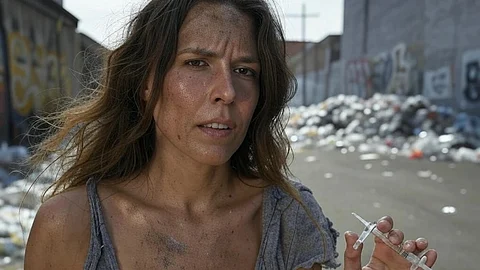

While other Canadian jurisdictions grapple with policies enabling widespread drug use, Alberta has introduced legislation to mandate treatment for some addicts.
The province tabled the Compassionate Intervention Act on Tuesday, aimed at supporting individuals with severe addiction who pose a risk to themselves or others.
The legislation seeks to strengthen Alberta’s recovery-focused approach while enhancing community safety — moving the province, which has a significant drug problem, in a different direction from British Columbia.
Critics argue B.C.’s harm reduction policies, including decriminalization and safer supply programs, have failed to curb the toxic drug crisis, with some claiming they worsen harm. Overdose deaths have surged since 2005, rising from 300 annually to more than 2,500 in 2023, driven largely by fentanyl’s spread since 2016, when B.C. declared a public health emergency.
By 2024, more than 14,000 deaths had been recorded since the emergency began. Controversies over free hard drug distribution, such as prescribed opioids, centre on claims of diversion to illicit markets, potentially fuelling addiction rather than reducing it.
Critics of the B.C. model also argue these policies enable drug use without addressing root causes, while supporters counter that safer supply saves lives by reducing reliance on toxic street drugs. Mixed evidence and political divides continue to fuel debates about effectiveness.
"Over the last 25 years, Canada has seen this dramatic shift where the activist class and the so called experts from community colleges have told us that we need to endanger our communities and forgo the dignity of the loved ones," said Mental Health and Addiction Minister Dan Williams at a news conference.
"There's this lie we've been told that we're choosing between caring for those in addiction and having safe communities."
Since 2019, Alberta has prioritized building a recovery-oriented system of care, known as the Alberta Recovery Model, emphasizing services and investments to guide individuals toward healing. Despite expanded treatment options, some individuals continue to face life-threatening addiction challenges, prompting the government to propose compassionate intervention as a new tool.
“For those suffering from addiction, there are two paths — destruction or recovery,” said Premier Danielle Smith. "In Alberta, we choose recovery, ensuring our most vulnerable can access vital supports.”
If passed, the act would allow family members, health-care professionals, police, or peace officers to request a treatment order or care plan for those with severe addiction. Specific criteria must be met, and other options explored before eligibility is considered.
The act would replace the Protection of Children Abusing Drugs Act, offering longer-term youth treatment, a streamlined application process, and greater family involvement.
“We cannot stand by and let addiction destroy our families,” said Williams. “This act provides life-saving support.”
Budget 2025 allocates $180 million over three years to build two 150-bed compassionate intervention centres in Edmonton and Calgary, with construction starting in 2026. Operated by Recovery Alberta, these facilities will handle intakes, assessments, and care delivery.
Temporary adult spaces may be available in existing facilities by next year. For youth, protective safe houses will transition to compassionate intervention spaces. The Northern Alberta Youth Recovery Centre, set to open in 2026, will more than double youth addiction treatment capacity.
The act also supports Indigenous communities, allowing First Nations and Métis to incorporate their practices into the intervention process. Patients exiting the system will receive discharge plans, including ongoing treatment, housing support, or skills training.
Since 2019, Alberta has funded more than 10,000 treatment spaces, built 11 recovery communities — including five with Indigenous partners — and expanded the Virtual Opioid Dependency Program for same-day medication access.
